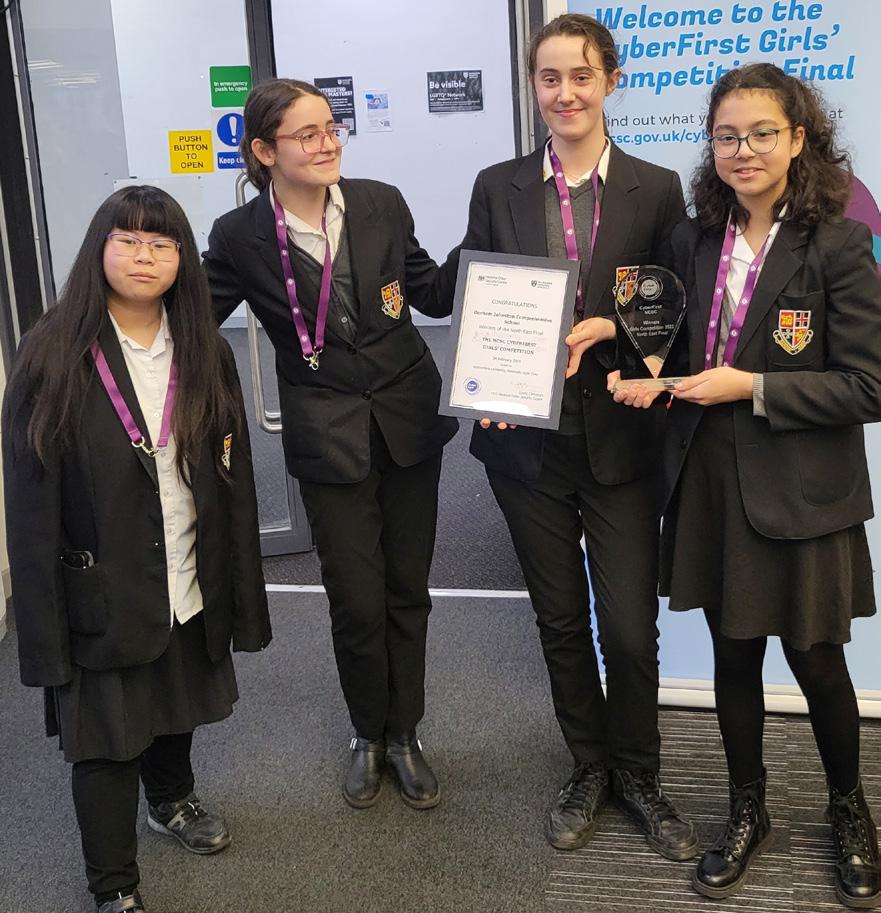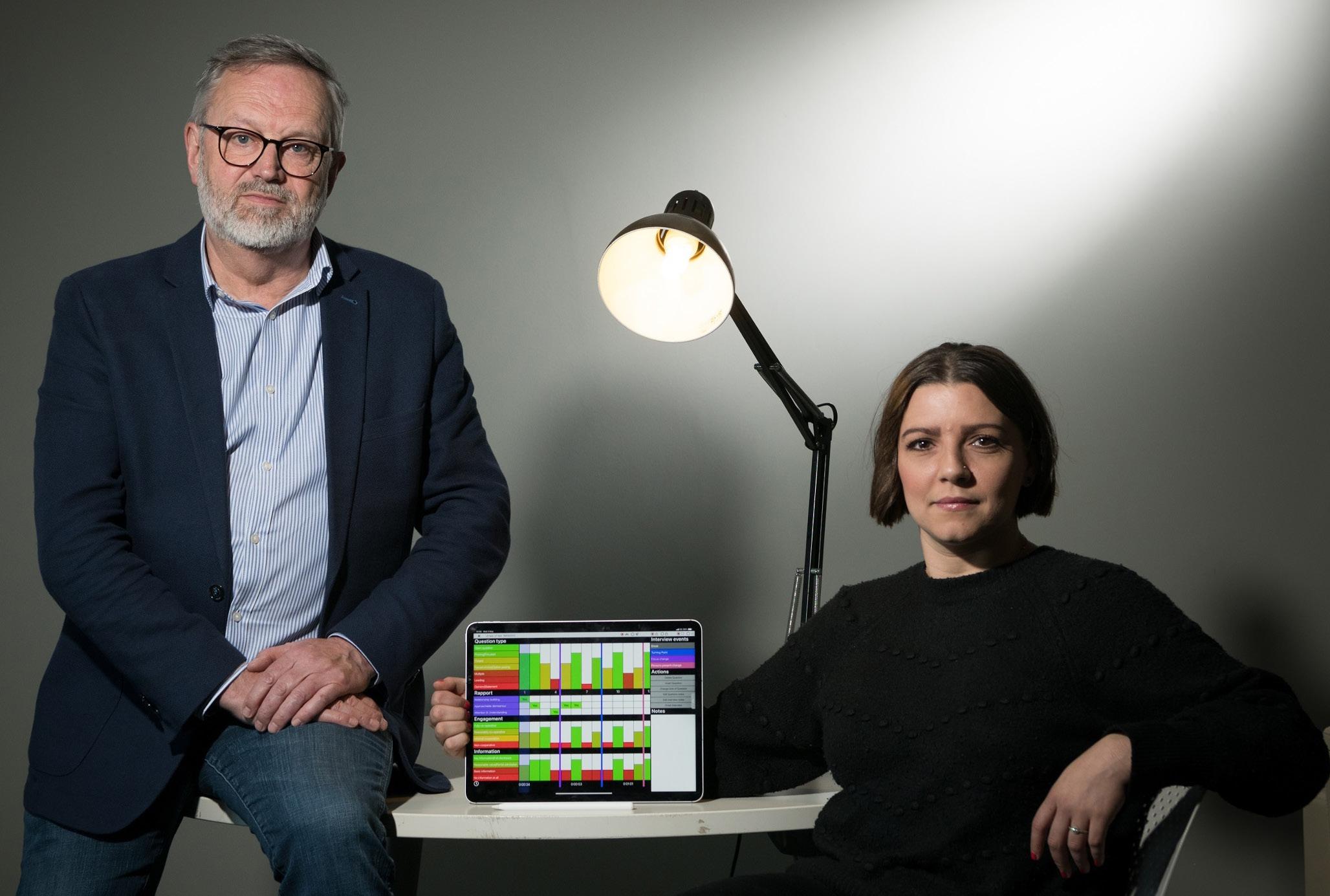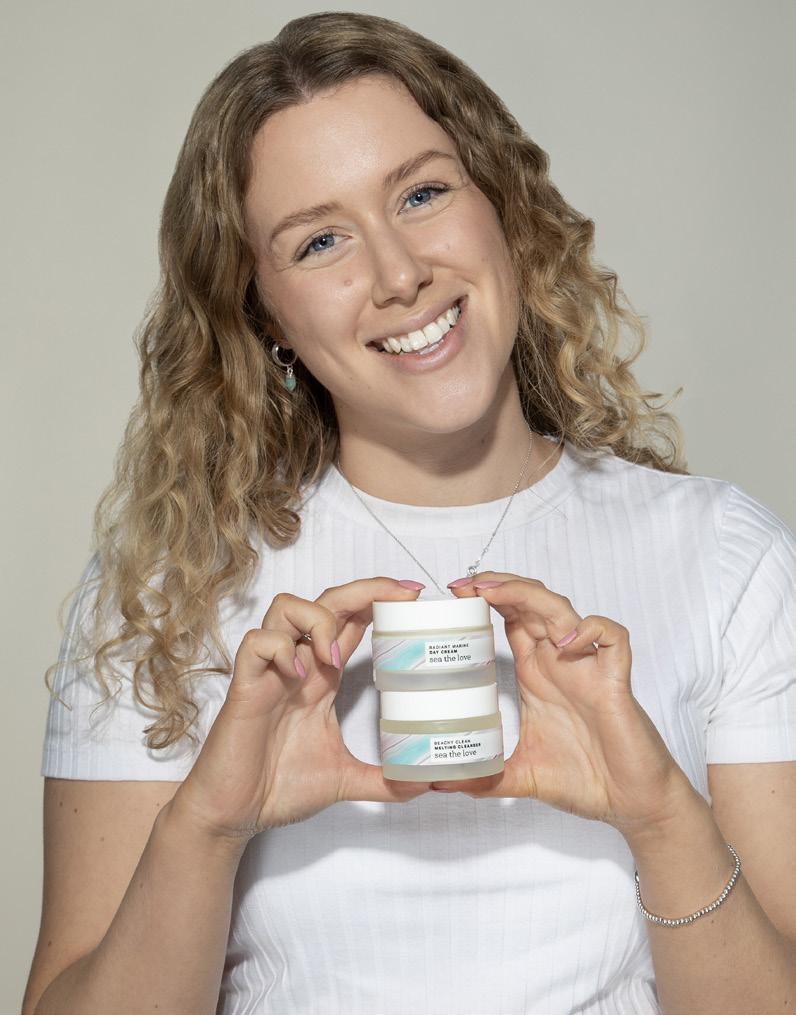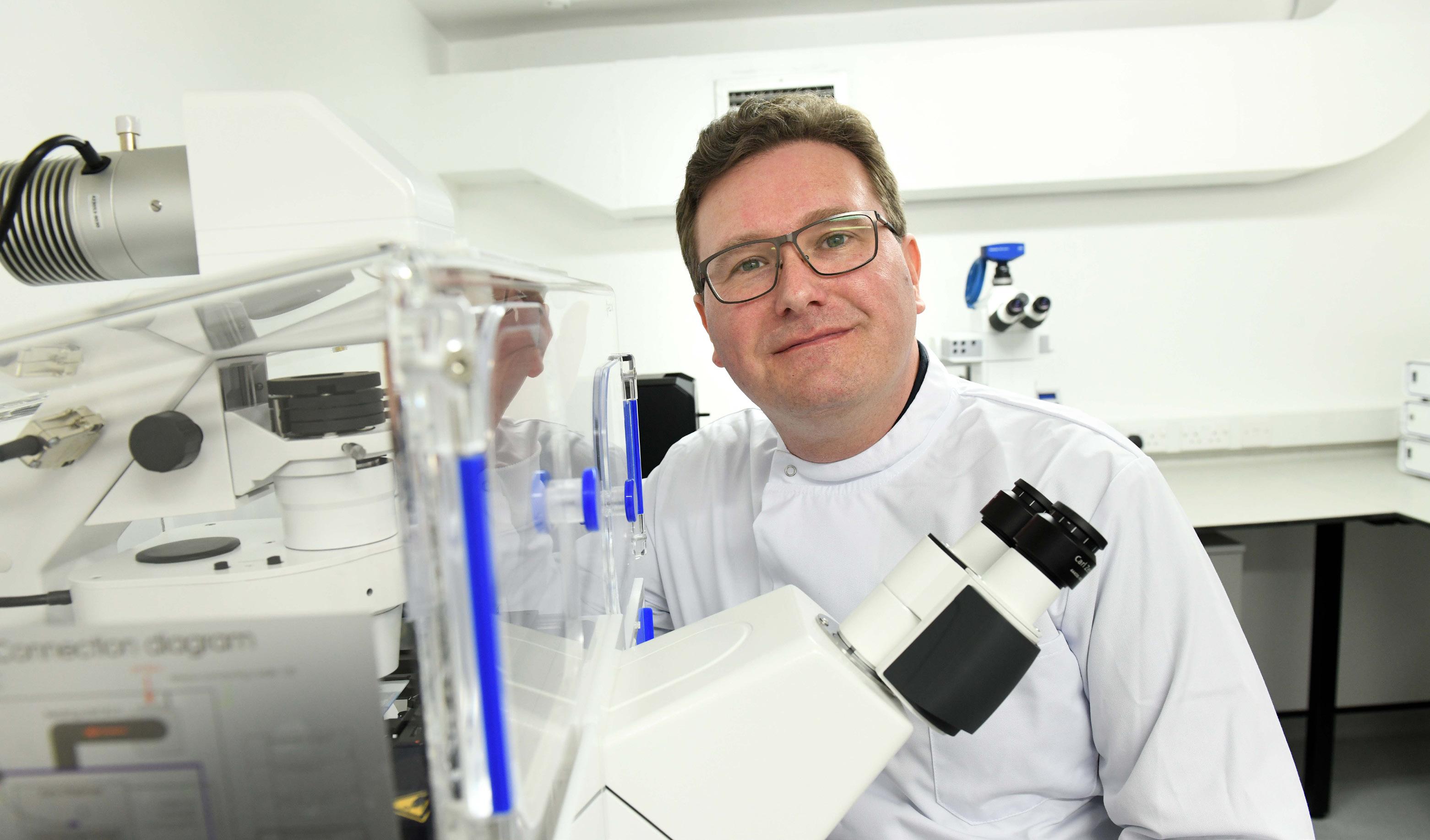
2 minute read
New technology to improve police interviews
School girls from across the North East went head-to-head in teams, taking on various cyber security challenges, in a bid to be named champions. The competition involved solving cyber-related puzzles based on topics such as artificial intelligence and cryptography. CyberFirst is a programme which offers young people the chance to explore their passion for technology by introducing them to the fast-paced world of cyber security. The Girls Competition is the NCSC’s flagship cyber security contest for schools, and since it launched in 2017, around 65,000 girls have taken part.
This year’s contest was entered by over 8,700 girls from England, Scotland, Wales and Northern Ireland. 13 finals took place simultaneously across the UK, each producing its own winner. At the North East event, Durham Johnston Comprehensive was crowned the winner.
Philip Anderson, Assistant Professor in Computer Networks and Security at Northumbria, said: “We were delighted to host this year’s final. It’s important that we look at ways to encourage and inspire young children into STEM careers and we were proud to welcome this year’s finalists onto campus for a fun day of codebreaking and cyber activities.”
Click the QR code to find out more about what Northumbria is doing to support children into STEM careers.
Researchers from Northumbria University have developed new software which will allow police and law enforcement officers to evaluate and improve their interview technique.
All police officers undergo indepth training on how to carry out interviews with victims, witnesses, and suspects of crime in a way that builds rapport and engagement – but research shows that these skills start to decline after a relatively short period of time.
In response, researchers at Northumbria University have developed the Forensic Interview Trace (FIT©) app, which will allow police officers, and anyone else carrying out interviews in a professional capacity, to continuously review and develop their technique to ensure they are getting the most out of their interviews, and asking questions in an effective and respectful way. Officers use the app to monitor how well their interviewee responds to each question, allowing them to look back at an interview and analyse how successful their questioning technique has been. The app also provides a visual representation of the responses, giving an at-aglance overview of the success of the interview.
The software has been developed by Assistant Professor of Psychology Dr Laura Farrugia and Professor of Police Science Gavin Oxburgh, both of Northumbria University; alongside Professor of Psychology Fiona Gabbert, of Goldsmiths, University of London.

As a Registered Intermediary, accredited by the Ministry of Justice, Dr Farrugia regularly works with vulnerable victims and witnesses, supporting them to give evidence to the police and to the court in criminal trials, and advising on best interview techniques and communication strategies. This experience, combined with her academic research in forensic psychology, gives her valuable insight into the importance of skilled interviewers.
As she explains: “We know that reflection is a great way to learn, and that taking the time to evaluate past interviews can help when planning future ones. The feedback we’ve had so far from the police officers piloting the FIT© software is that they are finding it a really valuable tool which is allowing them to get the best possible result from their interviewees, while at the same time contributing to their own professional development.”
Also involved in the development of the FIT app© is Professor Oxburgh – a globally recognised expert in humane interview and interrogation techniques. He was recently part of an international steering committee tasked with exploring the immorality and ineffectiveness of torture.
He added: “We believe this technology has great potential, not just in supporting police officers in their roles, but in encouraging and supporting the use of internationally approved interview techniques, which respect the interviewees’ human rights. This is something which we take for granted in the UK, but which is still not a given in many countries around the world, and anything we can do to uphold professional interview standards is a positive step forward.”
Click the QR code to find out more about Northumbria’s Centre for Crime and Policing.











